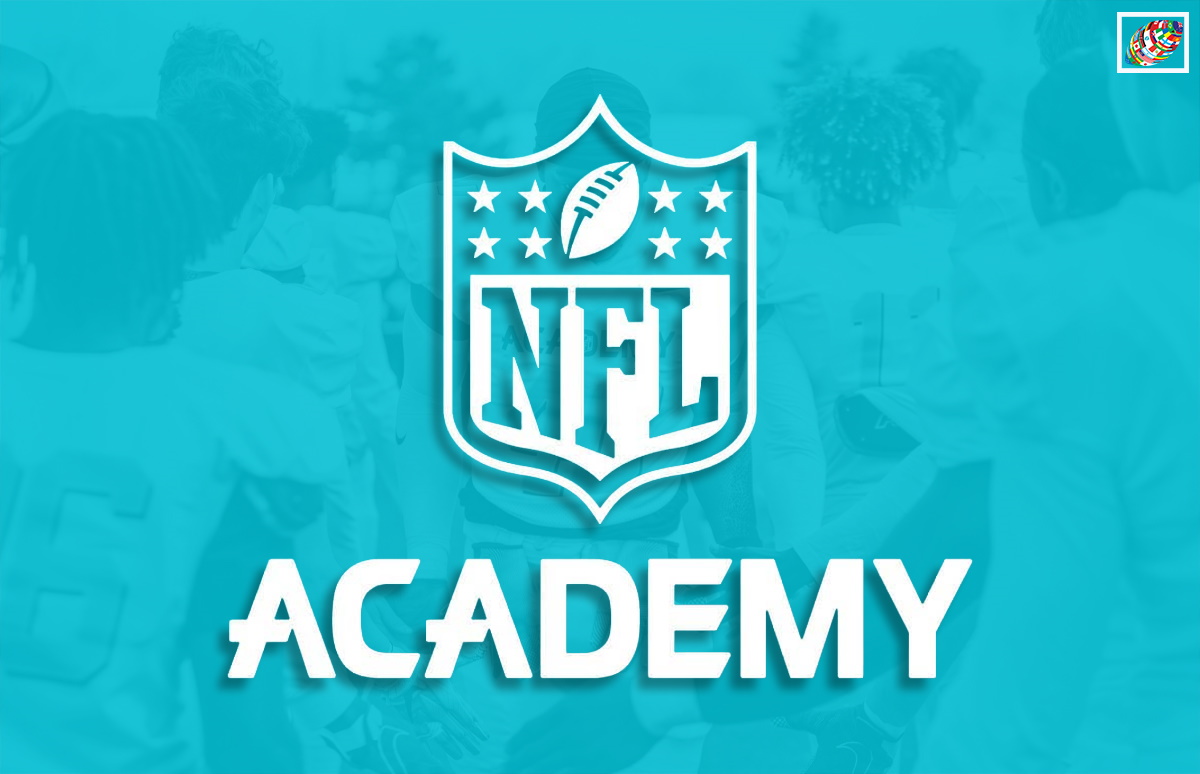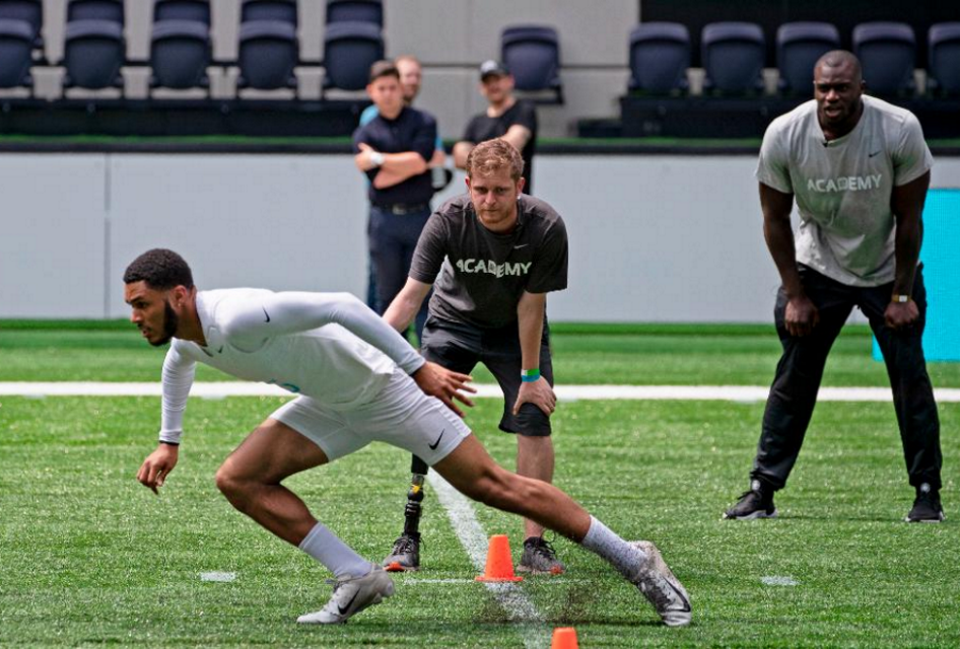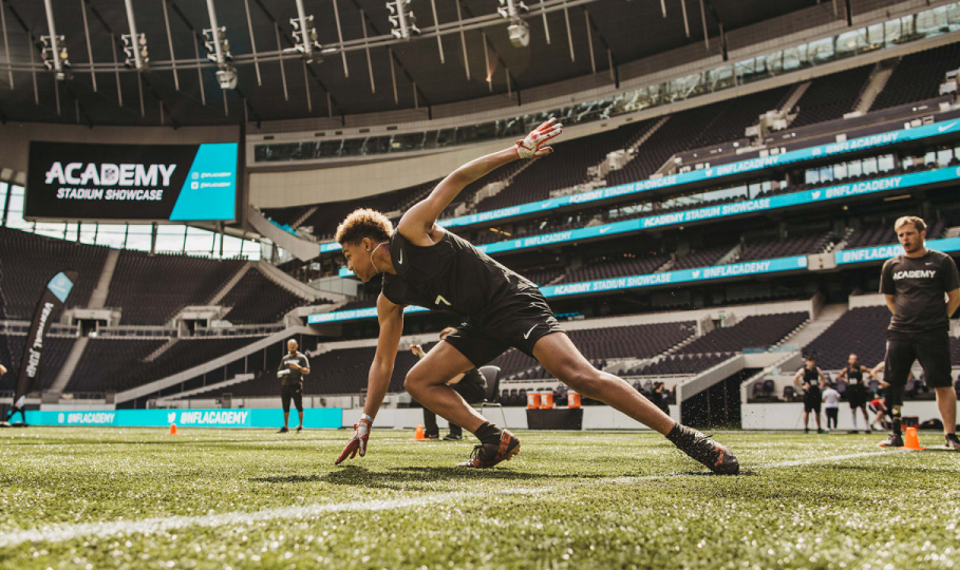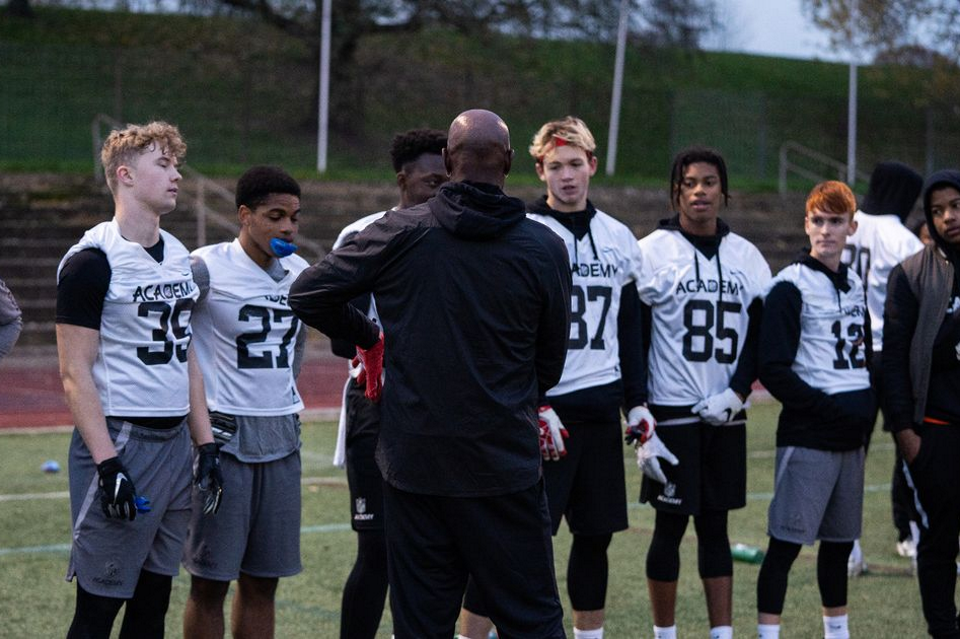NFL Academy: A commitment to the future of international football
Daniel MacKenzie | American Football | 08/15/2022
The NFL Academy is quickly becoming a hotpot for NCAA Division 1 scholarship offers. With training camp at its new rural campus just around the corner, many are still unsure of the Academy’s origins and how it came to be.
In 2018 Barnet and Southgate College (BSC), London, announced via social media that it would be holding tryouts for 16–19-year olds to enter into an American football academy. As a sporting colleg,e this was no new venture for BSC with other sports such as soccer, boxing and tennis all playing significant roles in the college’s offerings.
College in the UK refers to a two- to three-year window where students study for pre-university qualifications. For the non-Brits who attended the school, an additional fourth year of eligibility in the British academic system was granted due to the different regulations in their respective countries.
It was after the initial tryout, which was rumored to have received 1,000+ applicants, that students were invited to a second camp, only this time advertised as the NFL Academy.
The NFL would be taking over the Academy at BSC and providing its full support, and most importantly funding. The academic side of things, however, would still be firmly in the hands of BSC.

After the second tryout the numbers were whittled down to 80 and spread out over their respective years of study with some only having one year of academic eligibility left. Of those 80, approximately 30 were from London, 60 from the rest of England and the remaining 20 were from other parts of Europe.
The founding aims of the NFL Academy were to become the best football academy in Europe, offer players a credible route to college football under the tutelage of the NFL and eventually make it into the league through conventional methods.
Another key player in the equation is NFL UK, an organization that oversees the NFL’s London International Series games and controls all things NFL in the UK. Due to its proximity, it is also the operational arm of the academy.
Due to the complex and sometimes nonsensical minefield that is NCAA eligibility, all equipment and bursaries were carefully considered so as to not make students ineligible for college football in the US after they had finished at the NFL Academy.
To say that the Academy has been a success would be an understatement. Not only has it dominated every other academy in Europe whenever they have played each other, but it has also secured several Division 1 scholarships for recent graduates. The NFL Academy’s European dominance has even caused the other UK American football academy, Filton Academy, Bristol, to refuse to even put their players on the field against them.

NFL Academy athletes such as Kofi Taylor-Barrocks, Peter Clarke and Daniel Akinkunmi are just a few names who have been offered full rides from the likes of Ole Miss, Western Virginia, Michigan State, Jackson State, Nevada, Temple, Arkansas, and Colorado, to name a few.
Linebacker Taylor-Barrocks was even invited to the Under Armor Future 50, an event held to showcase the nation’s top 50 recruits. Considering that the 6’1, 220 pound linebacker from London has never played a snap state-side, it’s an impressive accolade.
The overwhelming success of the Academy has been due to excellent recruitment and a training regime similar to that of top-tier high schools in the US. Football in the UK, and in the rest of Europe, is still mostly a niche sport. However, with the NFL lending its weighty name to the Academy, athletes who would have otherwise been drawn to the more lucrative sports in Europe are now coming to football.
Commitment from the student-athletes is essential, there are no easy rides in the Academy. Players such as offensive linemen Daniel Akinkunmi had to be up by 4am to make the 150-mile journey down to North London from Sheffield for 9am starts. Multiple weight-room sessions and field practices along with regular academics made for grueling schedules, and this all with students paying their own way.
It was for this reason that the Academy recently announced it was moving to Loughborough College as part of Loughborough University, a rural campus in the middle of England. One of the best sporting facilities in the country with the ability to house students and provide everything on-site, taking away any financial pressures that students may have felt previously.

But on the flip side to this, the change in location will lead to a change in demographic, something that current student-athletes noticed at the Loughborough trials in July 2022. With sport being less accessible in London’s low-income areas there is a higher chance of finding diamonds in the rough, Efe Obada, now playing for the Washington Commanders, is a prime example
Additionally, with London’s densely populated urban center making up nearly 20% of the country’s entire population and the vast number of issues that may arise from a parent sending their child to a football boarding school in the Midlands, the move may impact the level of raw physical talent coming into the Academy.
Training camp at the NFL Academy’s new Loughborough location begins in one week. Regardless of the NFL’s motives, the Academy is a clear commitment to football outside of North America. With countless Division 1 offers on the table for many of the Academy’s recent graduates, the future for international athletes wishing to pursue the game looks unprecedentedly bright, something we can all get on board with.
HEADLINES
-
Advertisement
-
Advertisement